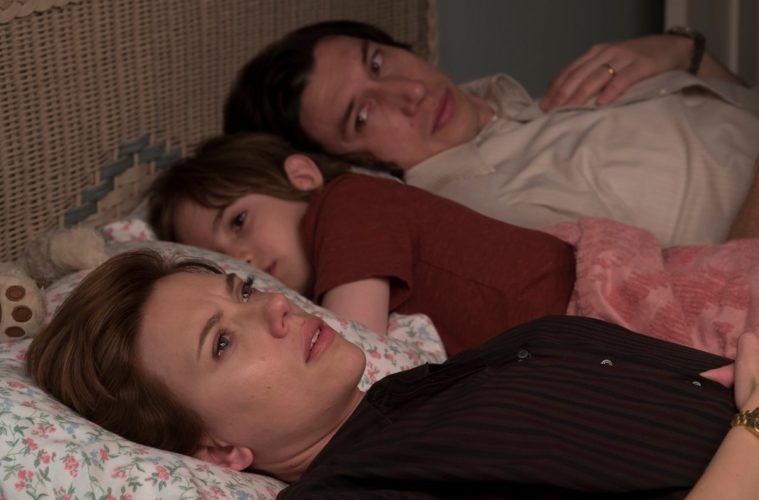Tastefully adorned Brooklyn apartments. Self-effacing dialogue. Lingering melancholy. A-list stars, including Adam Driver, comfily dressed-down, as if they’d skipped tinsel town to open a corner bookshop. And so forth and so on. You would hardly need a BA in Contemporary American Cinema to equate the opening moments of Marriage Story to the work of Noah Baumbach.

The New York director’s films have always seemed to flitter somewhere between the bittersweet and the lowdown–first coming to us with Kicking and Screaming in 1995 but only establishing a brand with The Squid and the Whale a whole decade after–a film that remains his most caustic and personal, and perhaps still his best–at least until now. His more recent work (self-deprecating comedies about the anxieties of impending middle age (Greenberg, While We’re Young, The Meyerowitz Stories) have suggested a move towards the genial but Marriage Story sees the director tie those two threads together in a way, and one wonders what has taken so long.
As an elevator pitch: it’s Kramer vs. Kramer for the 21st century, with Scarlett Johansson and Driver–both in career-best form–in the Streep and Hoffman roles, respectively. Nicole (Johansson) and Charlie (Driver) are partners on the verge of a break-up and parents to young Henry (Azhy Robertson), their only child. Charlie, a soon-to-be recipient of the MacArthur grant, is a playwright on the cusp of real fame, and the head of a successful theater group that is about to make the jump to Broadway. Nicole is a Los Angeles native who once starred in a frat house comedy but left the Hollywood path in order to act in Charlie’s plays. You might spot where the tensions eventually lie.

Having drawn so much from experience (the director famously went through a divorce and custody battle not so long ago), it’s unsurprising that Baumbach would try to show both sides of this story. Marriage Story switches between POVs from the very start with a great opening sequence in which husband and wife, in voice-over, declare what they love about each other, that then switches to a marriage counselor’s office where they sit in silence. The later courtroom scenes test the director’s ability to remain impartial but they are amongst the film’s finest moments. They also allow room for great supporting roles for Allan Alda, Ray Liotta and, best of all, Laura Dern–offering a brilliant, quietly carnivorous update of her character from Big Little Lies.
Things are no less amicable behind the camera: Randy Newman’s score skips between the wistful and downtrodden; the writing is as challenging and funny as anything Baumbach’s done, and cinematographer Robbie Ryan further confirms himself as one of the best around. It is still the central pairing that makes it work, especially Johansson–in an all-too-rare lead dramatic role–who gives a remarkably cheerful and subtly devastating performance as Nicole. Baumbach allows both of his main players to grace us with a song. He also allows them a scuffle or two, one of which might be the most fierce marital brawl put to screen since Tony and Carmella’s in season four of The Sopranos. Marriage Story shows Baumbach reaching an entirely new level in his most consummate film to date.
Marriage Story premiered at Venice Film Festival and opens in theaters on November 6 and Netflix on December 6.

